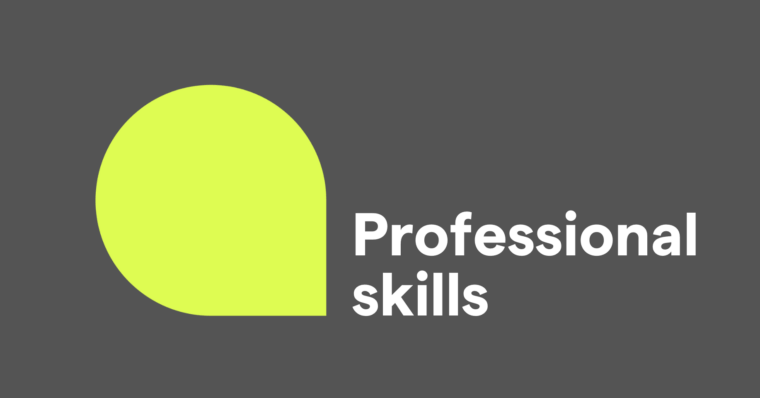
The first day of a new job presents a chance to make a good impression on the people you’ll (hopefully) be working with for years to come. Of course, you’ll want to ask smart questions, meet your colleagues, learn the office layout, and get your desk organized, but there are some more subtle ways you can set yourself apart as an exciting addition to the team from the moment you walk into a new work environment.
Here’s the best advice HR pros, executive coaches, and career counselors have on nailing day one at your new gig.
1 Define success in your new role.
The key to doing an amazing job? Knowing exactly what’s expected of you. There’s no better time to find out just what that is than on your very first day. “Ask your boss how your success will be measured and over what time frame,” advises Roy Cohen, a career counselor and executive coach. “Without context and expectations, you will have no clue as to deliverables, the time required to come up to speed, and the resources you will need to deploy to achieve success productively and efficiently.”
2 Focus on people, not issues.
You’ll most likely be meeting a lot of new people on your first day, so give them your full attention. This advice is especially relevant if you’re in a management position and will be meeting your brand new direct reports. “Your job is to work on the strategy and execution of the issues, but it is not possible to make an impact or create change without connecting with the people and having them trust and value you,” explains Shefali Raina, an NYC-based executive coach. “Many new managers make the mistake of rushing on day one to talk about the issues without first understanding the players, from a misplaced belief that this will show credibility.” Instead, focus on making connections, making a good first impression, and showing interest in what your new colleagues think and need.
3 Seek out the right reading materials.
“Immerse yourself in reading all that you can about the company’s culture and norms: old newsletters, articles, decks, org charts, etc.,” says Amy Zimmerman, Head of Global People Operations at Kabbage. These types of documents can give you a decent primer on what’s important to your new organization. “If done effectively, you will have far more context and information, which will help you understand the company, your role, and what success looks like.”
4 Shift the focus to your new colleagues.
It can be tempting to tell your life story to new co-workers, but try to spend more time learning about them than you do talking about yourself. “To start gaining respect of colleagues and superiors on the first day, make it about them, not about you,” says Jason Sackett, an executive coach and author of Compassion@Work: Creating Workplaces that Engage the Human Spirit. “A common first-day trap is to talk up your own past accomplishments and future ambitions, which makes people nervous or annoyed because they don’t know you. Instead, get curious and inquire about the roles, talents, and achievements of your colleagues to establish a persona as a listener, learner, and collaborator.” Expressing a real desire to learn from others will also put people at ease and start the work of establishing trust, he says.
5 Confirm how your manager likes to communicate.
“One question you should ask very early on is how your manager likes to communicate,” says Alexander Lowry, a professor of finance and advisor and board of directors member for fintech and financial services companies. Do they prefer that you drop by and talk about things in person? Send them emails or messages via Slack? Text them on their work phone? “Do not wait for the manager to tell you, and do not assume he or she communicates like other managers you’ve had before.”
6 Don’t wait to be introduced.
Your manager will probably introduce you to the rest of your department, but it’s a good idea to branch out beyond that, even if you’re not prompted by a superior to do so. “Reach out your hand and initiate a greeting, especially focusing on those who work near you, on the same team as you, or that you might interact with frequently in the future,” suggests Katie Rasoul, Chief Awesome Officer at Team Awesome Coaching. “This may be a little uncomfortable for some people, but it is temporary, and you will have started relationships from day one to ease that discomfort later on.”
We think your writing is beautiful.
That’s why we created the New Grammarly Editor—to match our users’ fantastic writing.
Have you tried it yet? #cleanwritinghttps://t.co/GxkYT3RONA
— Grammarly (@Grammarly) May 21, 2018
7 Listen for language cues.
“All organizations have their way of talking, and if you can catch some of the lingo and patterns early, you’ll sound like you belong faster,” explains Colin T. McLetchie, HR pro and president of Five Ways Forward. “Ask when you don’t know a term or acronym (every organization has its alphabet soup) and make a list of those. If they don’t have a list for you, create one and share it with HR and new people when they join.”
8 Offer to help during downtime.
The first day—and the ones that follow—are often slow-moving as you get up to speed. “There may be some downtime during your first few days on the job as your boss and team adjust to having you there,” Lowry says. “But don’t sit around waiting for others to figure out tasks for you—volunteer to help your new teammates on a project. You’ll show initiative, build rapport with your boss and co-workers, and learn about expectations, procedures, and how things are done.”
A version of this post originally appeared on Glassdoor’s blog.
More from Glassdoor:
5 Apps That’ll Transform Your Career





